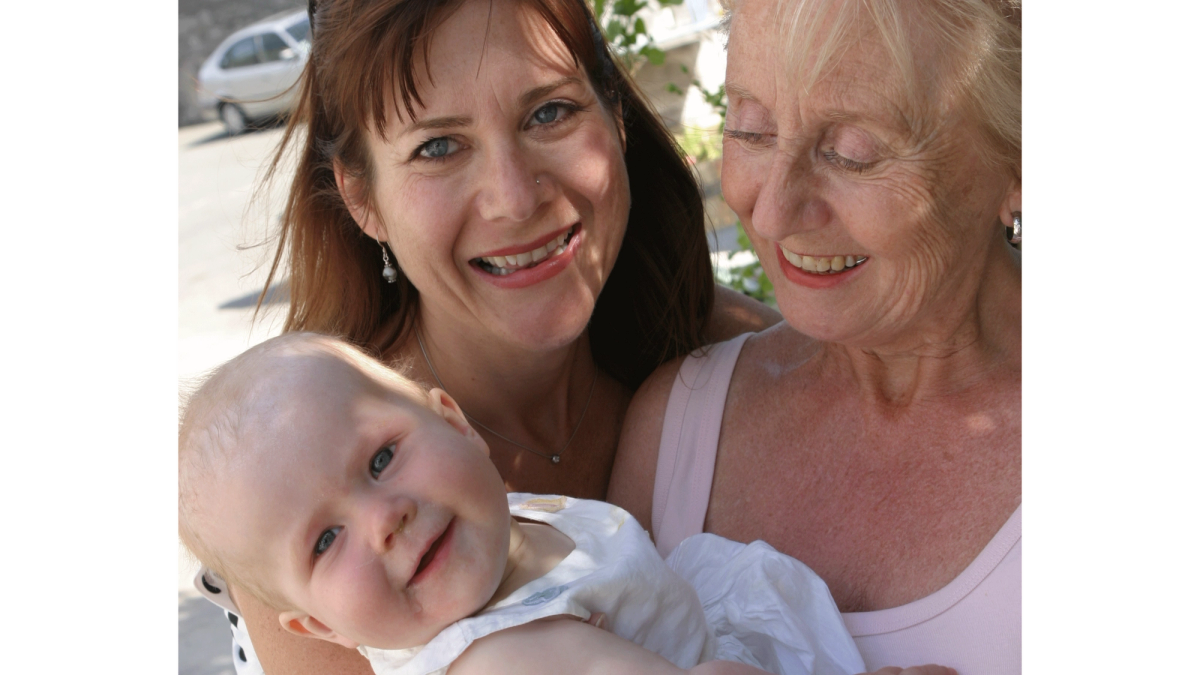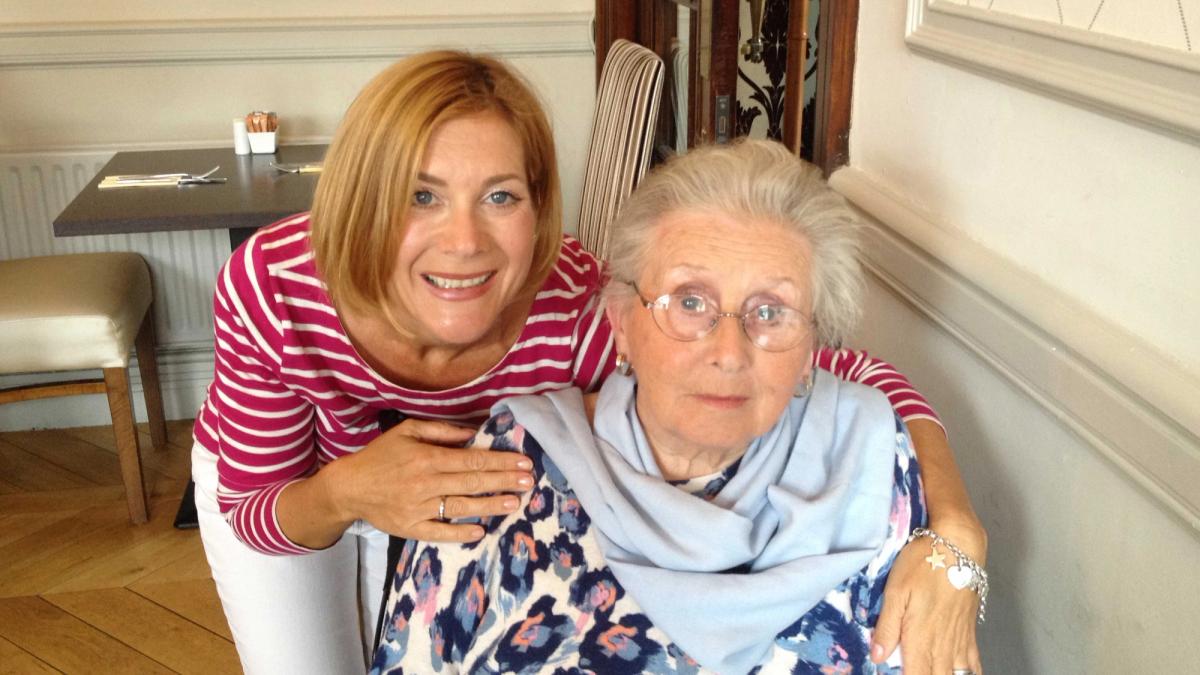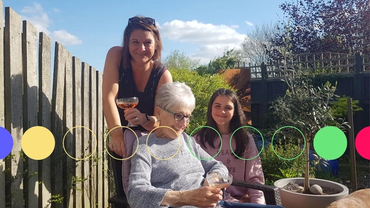'My sandwich years arrived by ambulance – four days after I’d given birth'
24 Aug, 2022
By Alana Kirk
Midlife coach and author Alana Kirk, from Belfast, was catapulted into the ‘sandwich years’ when her mother had a sudden stroke just days after her third child was born.

Alana with her first daughter Daisy and her mother Pat.
My sandwich years arrived by ambulance, four days before I’d given birth to my third and final baby, my mum as excited as ever at another grandchild.
I was still in hospital after a Caesarean section and had just said goodnight to her on the phone as she went off to read my other two girls a bedtime story. “Can’t wait to see you tomorrow,” she said, “I love you!“
She would never say my name again. Shortly after our call, my beautiful, active, 75-year-old mum suffered a catastrophic stroke that left her permanently paralysed, brain damaged and needing 24-hour care.
I would spend the next five years helping my dad care for her, while raising a very young family.
It’s an emotional rollercoaster and can be a financial minefield
The ‘sandwich’ generation of women is becoming increasingly common as our parents live longer and women start families later. Suddenly, in the mayhem of midlife, women can find themselves sandwiched between parent-care and child-care.
After a lifetime of being the ‘child’, we have to now become the carer to our parents. Obviously an emotional rollercoaster, it can also be a financial minefield.
Some of us enter the sandwich years gradually, perhaps noticing parents aren’t as agile as they once were, or might need a little help with simple things like food shopping. Or they might arrive with an emotional hospital consultation and an illness that will need managing.

Alana with her mother Pat in 2012, 2 years after she had suffered a stroke.
Mum’s illness happened too fast, too soon
Mum was the core of our family unit and when she had her stroke we were left reeling. Neither my brother or I lived close by, and so we alternated weekends, and often weeks, to support my dad. It had all happened too fast, too soon.
By chance, we had persuaded my parents to adapt their house to help with the beginnings of mum’s mild arthritis. Without that foresight, we wouldn’t have been able to care for her at home after the stroke.
Adapting to ageing and illness is far easier before than after the event. The learning curve was steep; finding the right home supports, what grants were available, how to sustain my dad emotionally as well as mum physically. Because mum’s mental capacity was taken so quickly, dad had no ability to sell the house, which needed two signatures, in case we needed a longer term care home.
My dad has now appointed power of attorney
Because of our experience with mum's stroke happening so suddenly, Dad has now appointed power of attorney and put all his banking and legal documents and passwords in a safe place for us, even though he is still mentally and physically well.
Two things the older generation don’t like to talk about are death and money. If you can, you need to discuss both.
Thankfully we all knew mum’s wishes and kept her at home, but many adult children struggle to make decisions around parent care if wishes haven’t been clearly laid out.
My advice to anyone, is have the conversations about later-life care and death as early as possible, so that life can be lived as well as possible.
Taking away as much of the financial stress and confusion before it’s needed, gives you more space to deal with the inevitable emotional toll.
Alana Kirk is a midlife coach for women - www.themidlifecoach.org.



